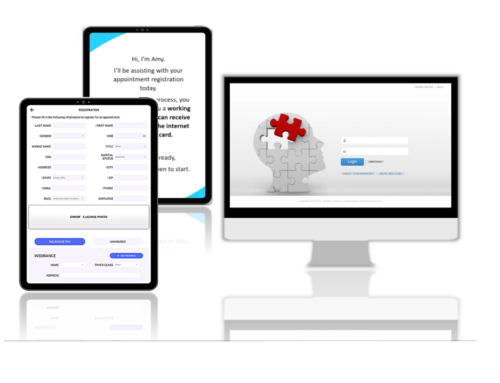There are many responsibilities in the medical billing practice and having to manage multiple claims at once can get stressful. To assist your medical billing journey, here are some tips that we find helpful.
5 Medical Billing Tips
1. Stay organized
It may sound simple, but this trick can help a lot. With multiple patient records and multiple claims, it can be difficult to keep track of every item. So, here are some best practices you can try with or without software to keep everything organized.
- Work on one patient at a time – while multi-tasking is good for some things, do not get distracted by multiple patient records. Complete a claim for one patient then move onto the next.
- Keep track of claims – check off which claims have been submitted and what stage of the process it is in. If an EOB has been returned, mark down that the EOB has been received so you can easily keep track of what to do next.
- Mark down dates – once a claim has been submitted, do not forget to keep track of it. Insurance payors can take 30-45 days to respond to a claim, so organize your dates and be sure to follow up if payments do not get received after 30-45 days.
Nowadays software can probably help with these tips, but keeping on top of these claims, submitting them, and following up with insurance payors is up to you. So even with technology to help, it’s a good idea to keep these tips in mind.
2. Keep up to date on information
Information is always changing. Therefore, it is crucial to keep updated on the current news in the medical coding and billing world. For example, the International Classification of Diseases (ICD) codes are reviewed and revised over time. The most recent that is being used is ICD-10, or the 10th revision. ICD-10-CM is the 10th revision with clinical modifications and includes updates such as codes used COVID-19 and vaping disorders. ICD-11 will be in effect starting January 2022.
Aside from ICD codes, Current Procedural Terminology (CPT) codes also change. For example, the COVID-19 pandemic has brought on additional codes used for COVID testing.
These are only a few things to keep track of. Different insurance payors can also have different policies or patients can have insurance policy changes. Make sure to know and understand the most current information and how changes can affect the way you bill.
3. Know where to get help
Speaking of keeping up-to-date on current medical billing practices, where do you go for this information? Here are some trustworthy sites and some billing information you can find on them:
Centers for Medicare & Medicaid (CMS)
- Information on Medicare and Medicaid billing
- General information and updates on Healthcare Common Procedural Coding System (HCPCS)
Centers for Disease Control and Prevention (CDC)
- Information about diseases and outbreaks
- Billing resources for immunization
- Updates to ICD codes
World Health Organization (WHO)
- Information on global health topics
- Updates on ICD and general information about International Classification of Diseases
Insurance company websites
- How to read their Explanation of Benefits
- Claim forms to download
- Information on insurance policies
4. Pay attention to details.
Paying attention to details while working can save you a lot of time and effort. Information such as the patient’s coverage or deductible amount can affect the amount of payment received from insurance payors. Be sure to check this information before submitting a claim so you are not surprised when insurance does not pay.
Make sure all the procedural items that need to be billed are added to the claim and added correctly. Double check claims to ensure every piece of information is correct before submitting. It is better to spend time submitting a claim properly to increase the likelihood that the claim is paid.
5. Stay on top of claims
Insurance payors can take a while to adjudicate claims and determine how much is paid. If you can, submit claims everyday so you are not waiting another extra day for payments to come through. If it takes an insurance payor 30 days to decide, don’t wait another 5 days to submit your claim. By staying on top of claims, you could help your practice’s revenue management cycle.
Furthermore, keep track of replies from insurance payors and follow up in a timely manner.
If you have anything you are unsure of, it can also take time to find the right resources and get the help you need. So, start early and give yourself that time to get answers.
Need more information?
Do not be afraid to get help! You can ask colleague for clarification, find useful resources from professionals online, or you can even outsource the work.
Many practices are now outsourcing their medical billing practices to free up time and resources. It allows them to focus on what they do best…care for your patients.
Meanwhile, medical billing companies’ focus is on the billing and collection processes and can be much more efficient and cost effective than internal teams juggling multiple responsibilities. They employ experts in the field who have an in-depth understanding of the topic and can help you get the results you need.
Find a medical billing company that works with you.
Consider outsourcing your medical billing to Americare Network. We not only deliver billing and collection services, but we work with you to design customized billing solutions. Our experts can work with your current system or design a unique billing platform. The billing team ensures proper claim submission and timely follow ups and appeals. As well, we cover services such as medical financing and practitioner credentialing to help ease reimbursements and improve cash flow. Contact us today to hear about how we can help you!




